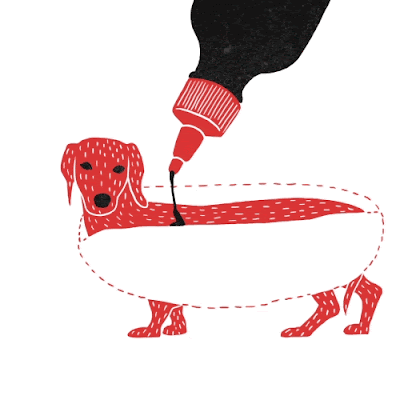New from NPR! 解夢機真的有可能 The Ultimate Dream Decoder
下載聲音檔請點我
下載文字檔案請點我
下載填空檔案請點我
(點標題可進入NPR官網文章)
From NPR News,
this is ALL THINGS CONSIDERED. I'm Robert Siegel.
this is ALL THINGS CONSIDERED. I'm Robert Siegel.
And I'm Audie Cornish.
Understanding our dreams is one of the most elusive難以達成的 goals in science. But now, here's a headline(媒體)頭條 that is not science fiction科幻小說: Researchers have
developed a technique for observing what people are dreaming.
NPR's Rob Stein tells us more.
ROB STEIN, BYLINE: For centuries, philosophers哲學家, poets詩人, psychologists 心理學家and others have been fascinated by對…感到著迷 dreams. But Jack Gallant, a neuroscientist神經科學家at Berkeley, says
solving the mystery of our dreams is one of the toughest最困難的problems out there.
JACK GALLANT: The question of what we can know about
our psyches心靈from knowing what we
dream is a long-standing長久以來的 question. In psychology and neuroscience, there's been 100 years of
argument about whether dreams are important or unimportant. We don't really
know, because we really haven't had very good access好的接觸管道 to peoples' dreams.
STEIN: We don't have very good access because we have
to rely on仰賴how people describe
their dreams, often as they're already slipping away一點一滴消失.
GALLANT: Because of the nature of dreams夢境的本質, we find it very
difficult to remember our dreams and to sort of describe them well. So the
idea is you could perhaps build a dream decoder 解夢機that would allow you
to inspect檢查 your dreams after you had them and sort of interrogate詢問/質問 them and figure out, you know, what you were dreaming about.
STEIN: And now, scientists in Japan are
reporting that they have taken a step toward doing just that. Yukiyasu Kamitani
is a neuroscientist in Kyoto日本城市京都 who led the work.
YUKIYASU KAMITANI: We built a decoding program for
the decoding of dream content, by analyzing brain activity 分析腦部活動during sleep.
STEIN: Here's how Kamitani's team built their dream
decoding program. First, they conducted brain scans 進行腦部的斷層掃描over and over and over
again on three volunteers, just as they were starting to dream.
KAMITANI: We focused on dream experience which can be detected發現 just a few minutes after the sleep onset開始/發生.
STEIN: The researchers woke up the study subjects受測者 repeatedly to ask them to describe their dreams. So they could start to
figure out which patterns of brain activity matched specific parts of
their dreams.
KAMITANI: Many of them were just about daily life -
in office or home - but some were, you know, funny, bizarre怪異, you know, experience.
STEIN: Including one man who dreamed he was having
dinner with a famous Japanese movie star.
The scientists then did more brain scans while the
volunteers were awake, so they could tweak透過不同方式去操作 their decoding
program.
KAMITANI: We used that to train the decoder.
STEIN: Then they put their decoder to the test,
scanning subjects' brains while they were dreaming to see if they can tell what
was going through their minds. And in a paper being published in this
week's issue of the journal Science科學期刊, the researchers
report that they were often able to match certain brain activity to
certain objects, like a chair, a window or a man.
KAMITANI: Our result shows that we can predict 預測what a person is seeing during dream. The result suggests that it may be
possible to read out dream contents夢境的內容, even when you don't
remember just by, you know, looking at brain activity.
STEIN: Neuroscientist Jack Gallant calls the research
a technologic tour de force科技的精心傑作 and says the ultimate decoder終極夢境解碼機would provide vivid栩栩如生的, detailed, representations畫面的呈現 of our dreams.
GALLANT: If you could build the perfect dream
decoder, it would create a movie on your television screen and would
just replay重新播映 your dreams. It would
replay all the actions that happened, the actors, the people involved, and it
would replay the sound.
STEIN: We're nowhere near that yet, but
Gallant says this latest research is a milestone里程碑 in starting to try to understand our dreams.
GALLANT: In this field of dream decoding, no one has
managed to successfully do this before. So this is - it's not the final step
down this road, it's the first step.
STEIN: A small step towards revealing why we
dream and what our dreams really mean.
Rob Stein, NPR News.











網誌管理員已經移除這則留言。
回覆刪除不好意思啊Tom,剛才一不小心竟然刪掉了你的留言
回覆刪除(技術性的失誤,非常抱歉)
不過感謝你的提醒,我日後會多補充商業與政治方面的題材。
其實篩選NPR頗辛苦,因為我要找有transcript且長度不能超過五分鐘的報導
另外NPR的政治方面議題
有時候跟美國的domestic issues有關
我怕托福不太考這些
所以有時候即便有長度合適的也被我踢掉了
總之我會再留意
...